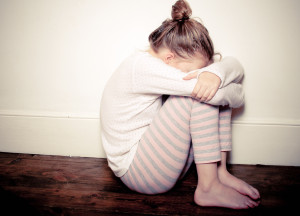Contributor: Sierra by the Sea clinical content team member Hugh C. McBride. Hugh
The disease of addiction is characterized by a loss of control. It makes perfect sense, then, that an important part of overcoming this disease is giving up control.
Giving Up Control
 As counterintuitive as it may sound (and, let’s be honest here, it sounds extremely counterintuitive), giving up control can be an essential step in the effort to live an independent life, free from the controlling chains of addiction.
As counterintuitive as it may sound (and, let’s be honest here, it sounds extremely counterintuitive), giving up control can be an essential step in the effort to live an independent life, free from the controlling chains of addiction.
The concepts of control and power (or, to be more precise, the lack of control and the lack of power) are important topics in the recovery world. For example, the most famous set of recovery guidelines, the 12 Steps of Alcoholics Anonymous, includes these topics in Steps 1, 2, and 3:
- Step 1: We admitted we were powerless over alcohol—that our lives had become unmanageable.
- Step 2: We came to believe that a Power greater than ourselves could restore us to sanity.
- Step 3: We made a decision to turn our will and our lives over to the care of God as we understood Him.
Admitting Powerlessness
Even to those who know nothing about addiction or recovery, admitting powerlessness over the substance upon which a person has become dependent probably makes sense. One of the most common ways that addicts deny their problem is to make claims of control.
“I know what I’m doing.”
“I can stop any time I want to.”
“I don’t have a problem.”
 On one level or another, these statements and others like them are all variations on the theme of “I’m in control.”
On one level or another, these statements and others like them are all variations on the theme of “I’m in control.”
The truth, of course, is that no addict is in control. Thus, it’s not that difficult to understand how admitting one’s powerlessness can be an essential step in climbing out of the depths of addiction.
But staying powerless? Intentionally giving up control of not only one’s addiction, or one’s behavior, but one’s entire life? What’s that all about?
Making the Decision and Giving Up Control
First of all, a close reading of Step 3 reveals that there’s a lot more going on than simply declaring powerlessness. In fact, as is noted in chapter four of “Narcotics Anonymous Basic Text,” Step 3 is an extremely empowering moment for the recovering individual:
“The Third Step does not say, ‘We turned our will and our lives over to the care of God.’ It says, ‘We made a decision to turn our will and our lives over to the care of God as we understood Him.’ We made the decision; it was not made for us by the drugs, our families, a probation officer, judge, therapist or doctor. We made it. For the first time since that first high, we have made a decision for ourselves.”
The act of admitting powerlessness also involves a tacit admission that the addict’s previous attempts to deal with his or her wants and needs by abusing alcohol other drugs were fraudulent expressions of control.
True Independence Come From Giving Up Control
True independence comes from admitting that a person can’t solve his or her problems alone or through substance abuse. Ceding personal control forces the addict to break free from this deluded and self-centered behavior, and encourages him or her to look outward to find healthy and productive ways of dealing with life’s stresses and setbacks.
 In the 12-step model, steps four through 12 provide guidance on how to re-establish one’s independence by giving up control.
In the 12-step model, steps four through 12 provide guidance on how to re-establish one’s independence by giving up control.
Conducting a personal inventory, making amends, praying, meditating, and sharing the message of recovery are all ways of encouraging the recovering individual to look beyond himself or herself, and to abandon the illusion that he or she has all the answers and is control of all situations.
Of course, this advice isn’t limited to the 12 steps, and isn’t applicable only to recovering addicts. Acknowledging that one has a mental health or behavioral health disorder is another way of admitting a certain powerlessness – and getting professional help for these problems is a prime example of giving control to an expert in order to regain independence.
Breaking the Chain of Co-Dependence
For family members, admitting that they are not in control of their addicted loved one’s behavior is a valuable step toward overcoming negative patterns of codependency. Family members learn that, while it is both normal and healthy to worry about a loved one, allowing worry to take over their lives is harmful on both an individual and a family level.
Family therapy often involves teaching loved ones how to set and maintain appropriate boundaries, how to be supportive without being codependent, and how to help their loved one by taking care of themselves.
Sacrifice Control
Learning how to sacrifice control in order to gain independence is neither a simple nor a straightforward process. Like recovery itself, becoming powerless in order to become independent is a long-term experience that requires focus, vigilance, and constant effort.
 For individuals who are struggling with addiction – and for the loved ones who care for and depend upon them – an effective comprehensive treatment program can teach valuable skills and strategies to support this lifelong effort.
For individuals who are struggling with addiction – and for the loved ones who care for and depend upon them – an effective comprehensive treatment program can teach valuable skills and strategies to support this lifelong effort.
The therapies, classes, and other activities that a patient participates in during residential treatment will help explain the value of these concepts, while also instilling the confidence and sense of purpose that will allow them to transform their dreams of a better life into the reality of successful long-term recovery.
About the Author:
"The Relationship Between Giving Up Control and Becoming Independent" was written by Sierra by the Sea clinical content team member Hugh C. McBride. Hugh has several years of experience researching and writing on a wide range of topics related to behavioral healthcare. He has a Bachelor of Arts degree from Grove City College.
Site Description:
Sierra by the Sea offers Detox, Residential, PHP, and IOP (ages 18+) for those struggling with substance abuse primary. Dual Diagnosis is available. Does have treatment focused on trauma and mood disorders. Gender-specific housing and extended stay options.
The opinions and views of our guest contributors are shared to provide a broad perspective of addictions. These are not necessarily the views of Addiction Hope, but an effort to offer a discussion of various issues by different concerned individuals.
We at Addiction Hope understand that addictions result from multiple physical, emotional, environmental, and genetic factors. If you or a loved one are suffering from an addiction, please know that there is hope for you, and seek immediate professional help.
Published on May 28, 2015
Reviewed and Updated by Jacquelyn Ekern, MS, LPC on January 13, 2021
Published on AddictionHope.com
